I DISAGREE
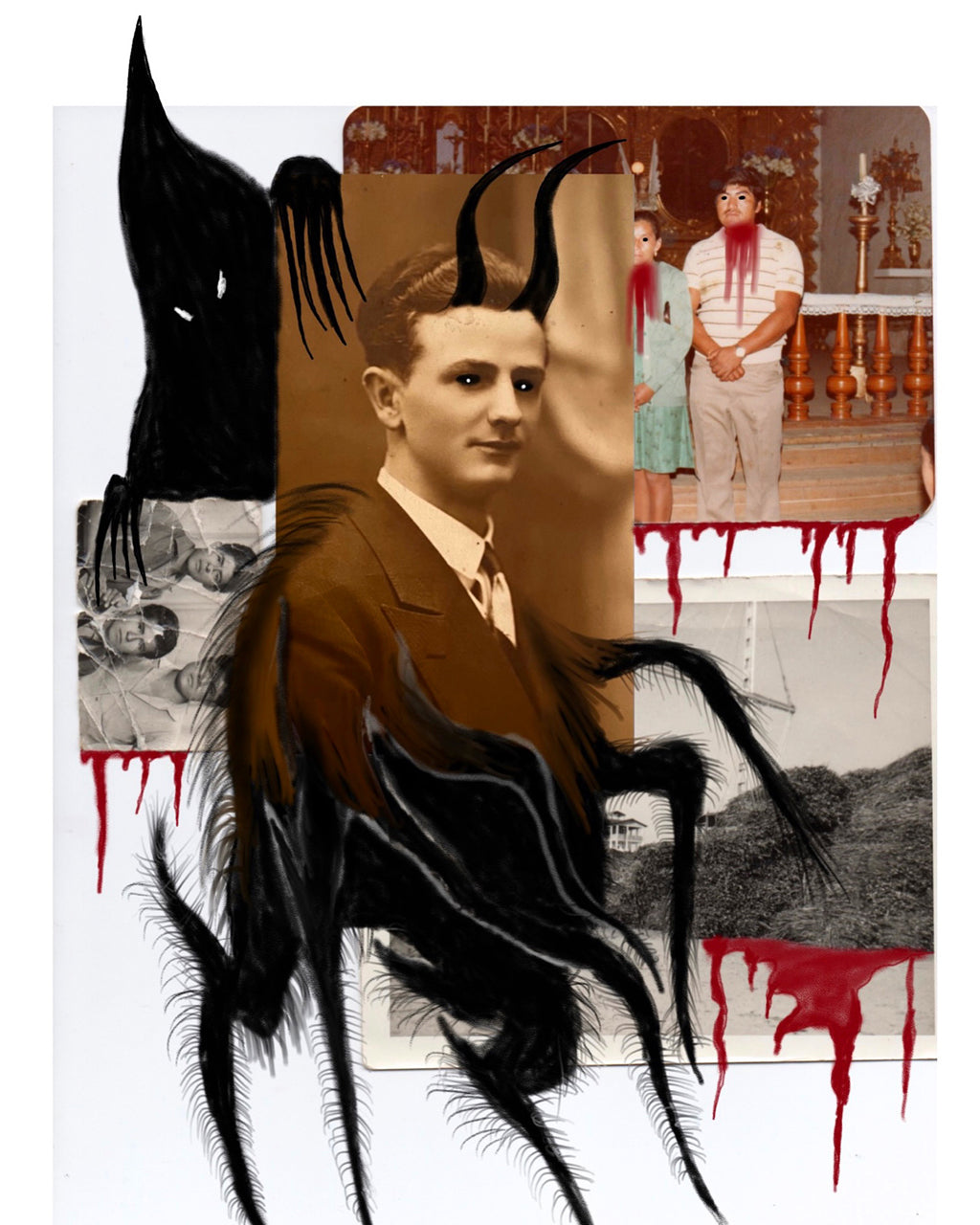
Diego Moreno. From the series Malign Influences
I DISAGREE
ANA CASAS BRODA & GISELA VOLÁ
Coordinators
ONLINE WORKSHOP
DATE TO BE CONFIRMED
Due to COVID conditions in the different countries of the workshop participants, the starting date has had to be adapted to the circumstances of each case..
Thinking and feeling from the image. I disagree is a program of thought and visual creation that manifests itself from the fertile tension of disagreement. We speak out against the traditional representations of hegemonic power, the normalizing stereotypes of beauty, of individuality as the starting point of a dominant and binary thought.
I Disagree claims the will to reinvent itself from the crack, the ugliness, the question, the error and the failure, seeking to enable new ways of saying and feeling that enrich the knowledge and the experimentation of artistic practices.
Making use of the virtual territory that this time offers us for communication, this program proposes from the power of adding diverse voices and looks of references of the world photography either from the outstanding artist Nelson Garrido of great trajectory that defines himself as a "visual terrorist" and creates in Caracas, Venezuela "the space for those who have no space", to the Sub collective from Argentina, who work collectively for more than a decade defending through a collective form convictions and principles that they sustain in their work. This wide range of artists will share with us their experiences and researches, diseducating us to build new knowledge for a world that needs to change.
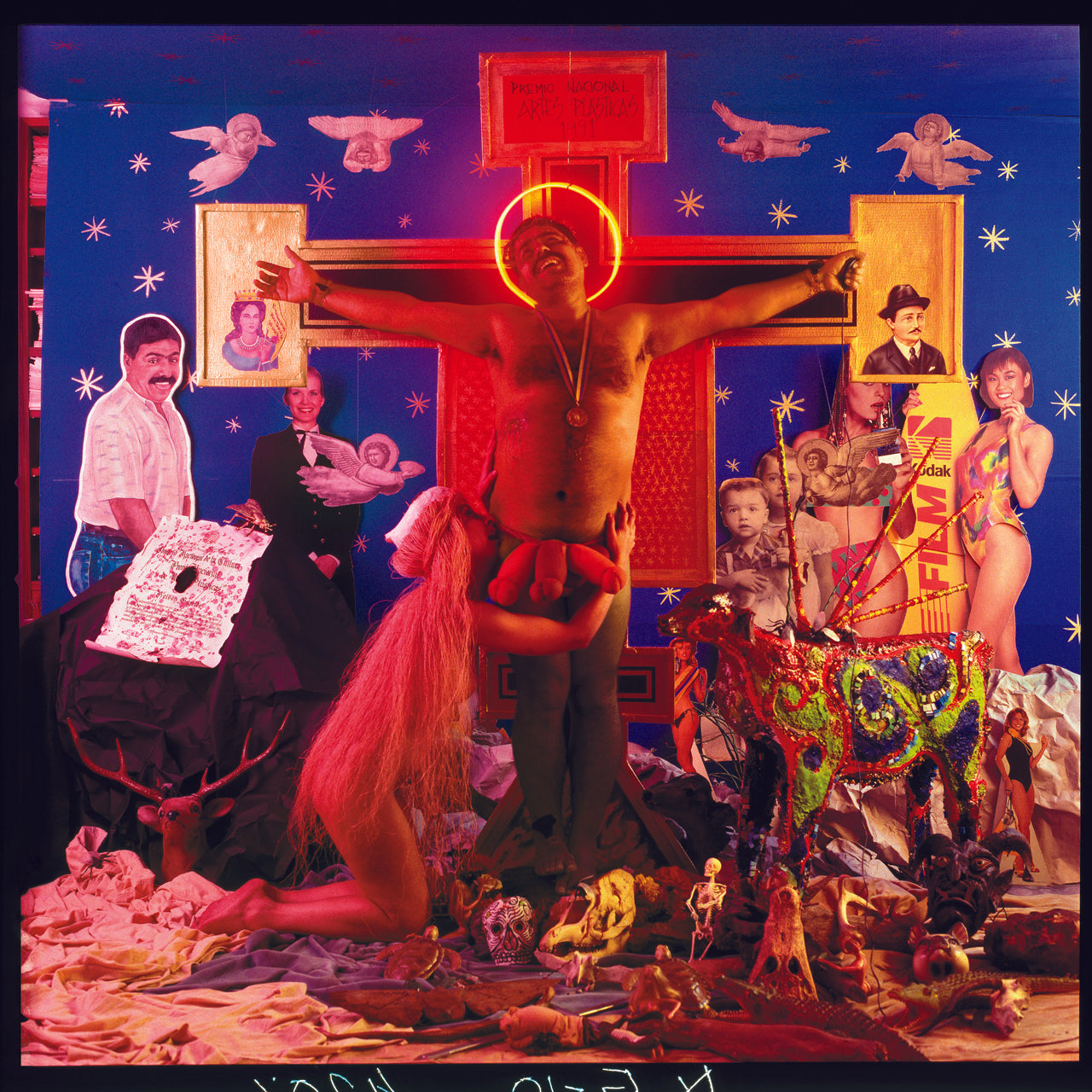
Nelson Garrido
PARTICIPANTS
ANA MAUAD - Brazil
DEBORAH KLOCHKO- San Diego, California, United States
DIEGO MORENO- San Cristóbal de las Casas, Chiapas, Mexico
EUSEBIO PENHA - Oaxaca, Mexico
FERNANDA MAGALHANES - Brazil
GALA GARRIDO - Caracas, Venezuela
GISELA VOLÁ - Buenos Aires, Argentina
GUANYU XU - China | United States
JUAN JOSÉ HERRERA - Mexico
JUAN PERAZA GUERRERO - Venezuela | Argentina
LA ONG - Caracas, Venezuela
LUANA NAVARRO - Brazil
MATTHEW LEIFHEIT - Chicago, United States
NAIEF YEIHYA- Mexico | United States
NELSON GARRIDO - Caracas, Venezuela
NELSON MORALES - Union Hidalgo, Oaxaca, Mexico
ROCIO INMENSIDADES - Buenos Aires, Argentina
RODRIGO ALONSO - Buenos Aires, Argentina
SHADMAN SAHID - India
SUB COOPERATIVA - Buenos Aires, Argentina
PROGRAM
JOHN PERAZA GUERRERO (Venezuela / Argentina)
Marginal stories of photography
To truly understand photography and its history, one must attend to what that history has decided to suppress. -Geoffrey Batchen. Let's open two books on the history of photography. Despite the overwhelming amount of images produced in the now more than 180 years of life of this medium, we will find a familiar landscape: the same names, places, dates; an invariable list of white, straight, European or American men, and also a few women.
These online sessions offer some conceptual and methodological tools to escape the restricted field of the canonical and encourage research on some forgotten stories: the contributions of women, of LGBT+ community photographers, of varied ethnic origins and from peripheral geographies. How to escape the restricted field of the few authorized voices and track this multitude of potential stories? How to ethically and critically explore the margins and other situations of vulnerability?
Beto Gutierre.
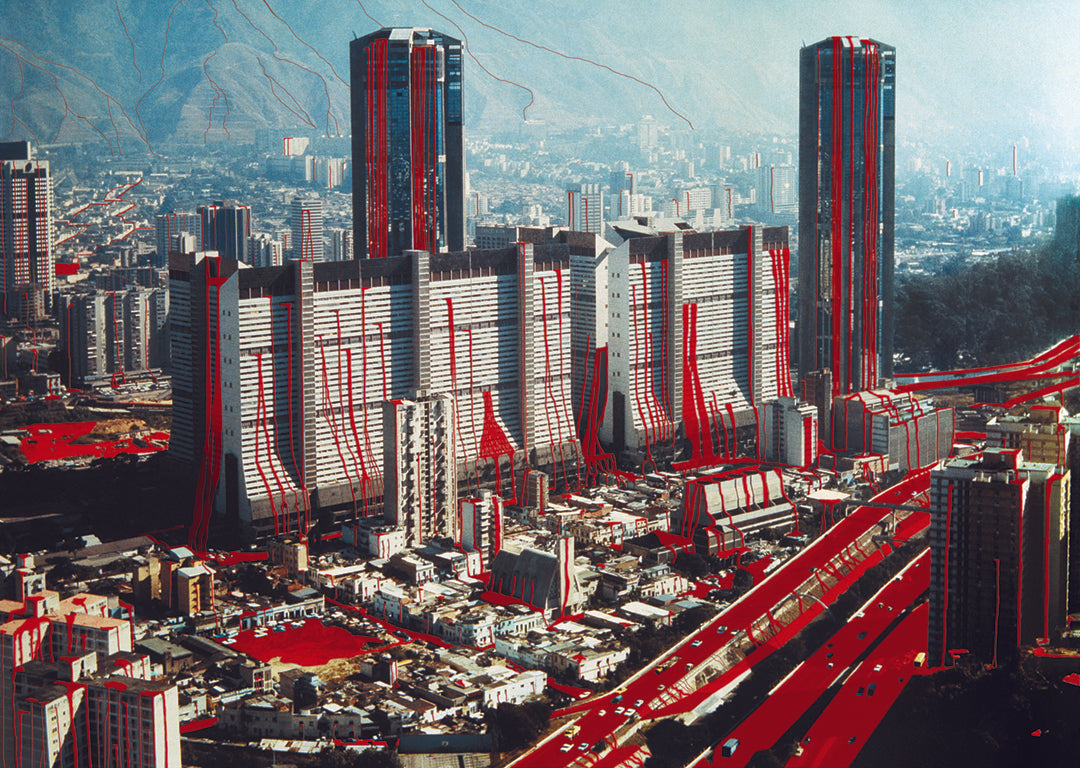
Nelson Garrido
NELSON GARRIDO (Venezuela/Caracas)
Aesthetics of Violence, Aesthetics of Ugliness
Nelson Garrido addresses the aesthetics of ugliness and violence as triggers for reactions. Through constant experimentation with expressive media and a deep questioning of the socially accepted system of norms and beliefs, Garrido uses these axes to allow the reading of his work as a reflection of the social present.
Photography as Metaphor
Using photographic staging as a starting point, Nelson Garrido has created in his artistic work an iconographic language that mixes religion, sex, humor and popular imagery. His work is articulated in the exploration of the fragments that make up the individual and collective imaginaries. In this way, he reconstructs each vestige of our symbolic universe as an exercise in activation and approximation, from the infinite and arbitrary potentiality of the sign, through a visual language that reveals itself before any determinism or form of power.
FERNANDA MAGALHAES (Brazil)
Grassa Crua: Bodies in performance and activism
"Grassa Crua" proposes to everyone other possibilities of feeling, perceiving and breaking with these small spaces to which we are destined, these spaces of containment, rules, submissions and judgments, such as the overvaluation of appearance, beauty, vanities and appearances. A world full of diversions that seem wonderful, but that hide dangerous illusions that imprison us. Rules that violate our bodies and need to be ignored as a possibility to break these bonds and change the structures. Fat bodies in movement, arts and politics of life in relationships.
My works are born from my experience with my fat woman body, at first the curved body of a young woman with questions in front of a world that considered her impossible to exist. Fat women's bodies are socially rejected, as if they should not exist. I always rejected that situation and never had problems with my mirror, I saw myself as a beautiful woman in confrontation with the discourses that were made about my body. The works arise from my disagreement with the discourse that placed me as a rejected body. The works began in the 80s, when talking about these subjects was a taboo. They only talked about the body of a fat woman to recommend diets. I lived in Rio de Janeiro for a year, in 1993. That's where the work came from, from the experience with a city where exposed bodies go to the beach and people wear little clothing, totally different from my city, Londrina, in Paraná. The strangeness of the bodies and the speeches about them led me to work. It was necessary to approach and discuss the bodies of our fat women. Then other works emerged and developed, debates that were added to the previous ones.
Vital trajectories, daily activism, affective relationships and positioning among the works that I have developed since then, addressing the issues of women's bodies and their many abjections, including fat people, disabled people, lesbians, crazy people and a whole list of exclusions. The creations and performances confront and are related to an infinite number of bodies that are involved and participate in the proposed actions. Two-dimensional representations, photographs, videos, installations and performances, the productions aim to question the norms and controls of women's bodies. Productions such as "Autorretrato al desnudo en Río de Janeiro", "La representación de la mujer gorda desnuda en la fotografía", "La naturaleza de la vida" and "Grassa en bruto"emphasize the thought that aligned the works and their performativity. Arts and politics of life.
ANA MAUAD (Brazil)
Session I: Photographic practice and historical experience I : fpublic spelling and social inequality. This meeting reflects on the collective photographic practice and alternative groups, as well as historical experiences of looks committed to alternative guidelines to the hegemonic. Do Colectivos (Two Collectives) - Mão na Lata and Imagens do Povo.
Session II: Photographic practice and historical experience II: fpublic photography and the worlds of art. This meeting reflects on the practice of photography in visual arts works and its role in the elaboration of the civil imagination.Two artists - Rosangela Rennó and Luiz Baltar
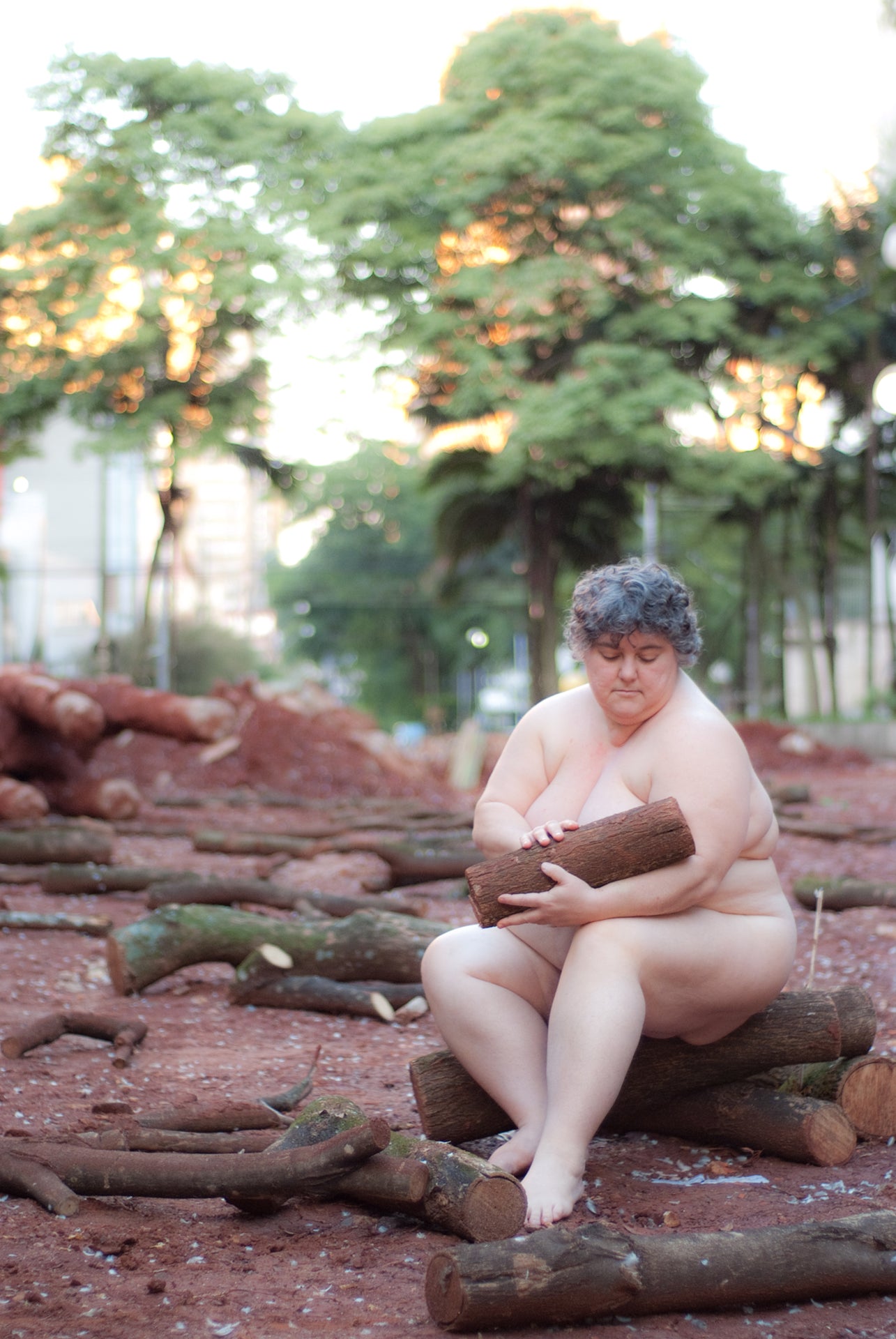
Fernanda Malgahaes
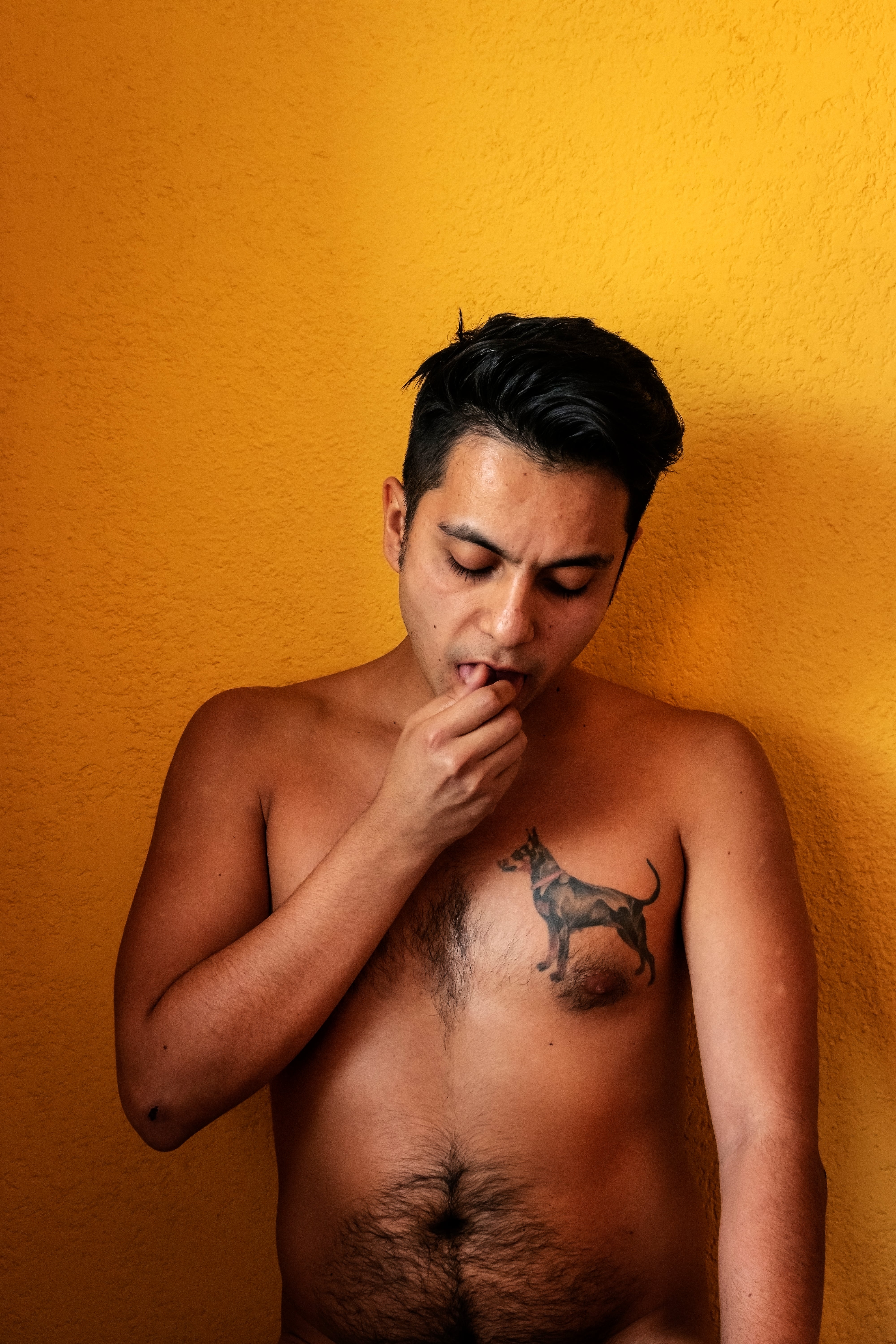
Eusebio Penha
DIEGO MORENO (San Cristobal de las Casas, Chiapas, Mexico)
La mirada que arde (The look that burns )
Session I. We share a review of the work of the author Diego Moreno, where he talks in depth about how his photographic projects are constructed, in which he explores in first person conflicts of identity, sexuality and domestic violence. He shares the use of photography in his life as a means to unravel his environment and build a present in the world as a person,
Session II. Photography has been linked in an intimate way to the processes of identity construction, it is something that fluctuates through the skin, something that mutates and bubbles; that which is shown to others with an undulating appearance. That is why this module compiles active creators in the photographic scene in the world so that they can share with us their way of approaching central themes of the contemporary individual and collective world, such as sexuality, eroticism, the human condition and bonds, etc.
EUSEBIO PENHA (Oaxaca, Mexico)
Sexuality, Body and Territory:
Producing from the Prohibited: Addressing relationships and cultural imaginaries around the relationship of the body with territories through male sexuality. Topics: The Closet and Cruising; Extimacy and Cybersex; Fat Bodies, Affections and Desires.
MATTHEW LEIFHEIT (Chicago, United States)
To Die Alive
This online lecture will feature New York-based artist Matthew Leifheit's work photographing the historic queer enclave of Fire Island. Titled "To Die Alive," the series depicts a fever dream of morbid sex and a retreat into the island's natural environment.
SHADMAN SHAHID (India)
Suspension of belief
Images are no longer omens of truth; their ability to "provide evidence" has greatly diminished with technological progress. However, there is no denying their power over our perception of reality. In the era of "post-truth" and "false news" we have become more skeptical about the facts that images present to us. In the framework of my photographic project "No quarter", in this session we asked ourselves: to what extent can fictional narration in photography improve our understanding of truth? "No quarter" is a docu-fictional photographic story about a couple in Bangladesh who have been in an abusive relationship for over twenty years.
GUANYU XU (Beijing, China/Chicago, USA),
Influenced by the production of ideology in American visual culture and a conservative family upbringing in China, my practice extends from examining the production of power in photography to the question of personal freedom and its relationship to political regimes. I negotiate this from my perspective as a Chinese gay man. In my work, I migrate between media such as photography, new media and installation. These movements operate in a similar way to my displaced and fractured identity.
Racism, sexism and anti-LGBTQ sentiments have increased since the election of neo-nationalist Donald Trump and his belligerent government. Growing up in China, my education was embedded in a deep nationalist ideology. This comparison between U.S. and Chinese policies reveals a simultaneous operation of nationalism and imperialism as a means of centralizing power. These male narratives of power connect and dominate individuals and institutions, private and public, personal and global.
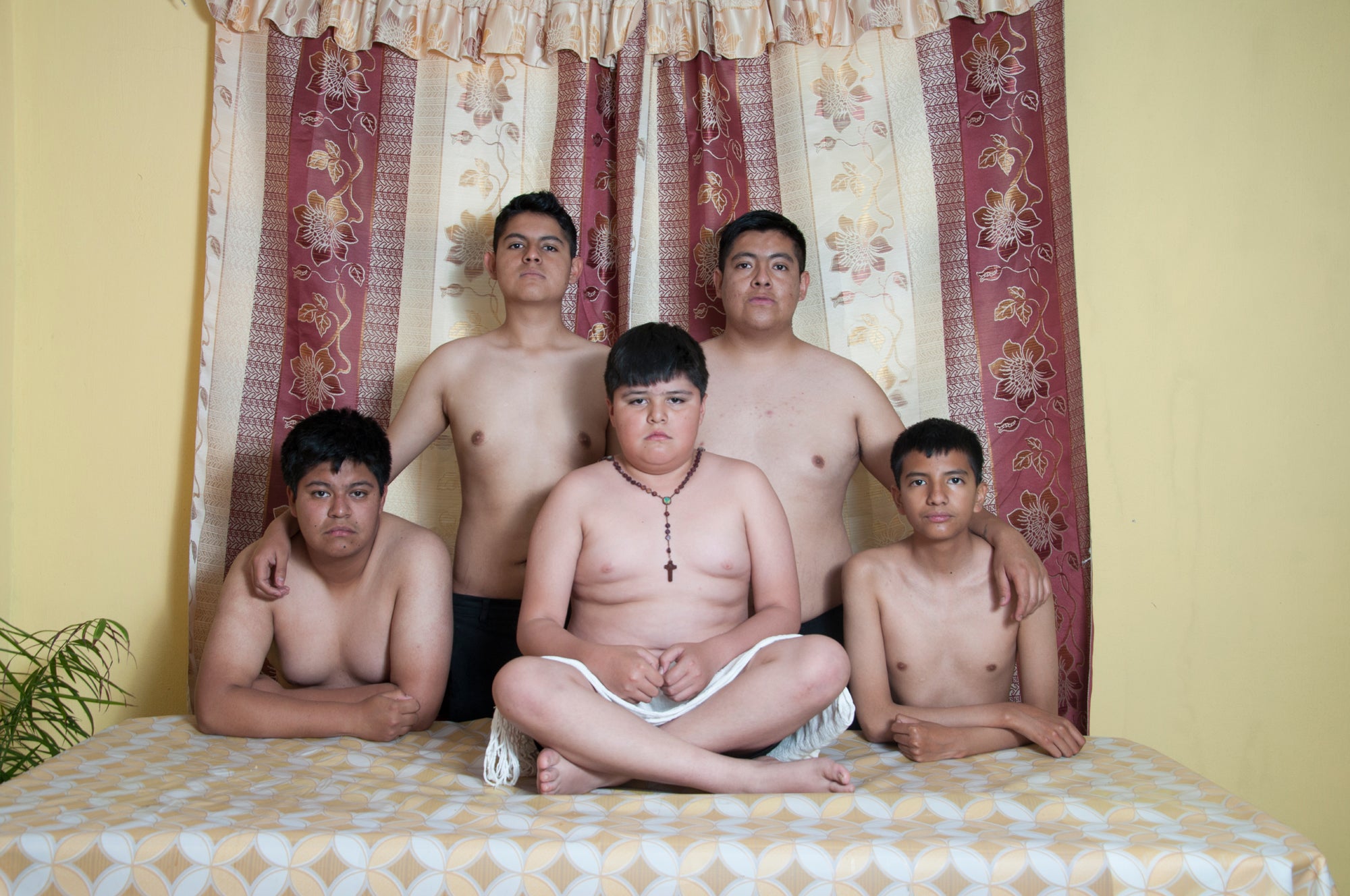
Huésped, Diego Moreno
Use overlay text to give your customers insight into your brand. Select imagery and text that relates to your style and story.
DEBORAH KLOCHKO (United States)
Create and Be Recognized,
To create and be recognized is the first study of a compelling and always surprising art form: outdoor photography. Here we present the work of seventeen largely self-taught artists who have used photography or photographic elements in their creations, including luminaries such as Adolf Wolfli, Howard Finster, and Henry Darger, as well as discoveries by little-known and equally dramatic artists. Like most foreign works of art, the work here is fed by unique passions, marginal mentalities and extreme circumstances, falling outside the mainstream of image creation.
Using collage (gluing photos or reproductions on a background), photography (photographs cut and pasted together to form a new set) and paintings (works based on manipulation and staging), the artists here present a work that is, in turn, lyrical and terrifying, and always fascinating. Published to coincide with a major traveling exhibition of the same name that originated at the Yerba Buena Center for the Arts in San Francisco, Create and Be Recognized documents an emerging and important facet of contemporary photography.
NAIEF YEHYA (Mexico / United States)
Pornography and pornoculture.
A historical, social, moral and political journey through the gender outside the gender. This program will analyze the general characteristics of genres, styles, codes and languages that define what we call pornography. We will review the elements that make it unique, its continuous flirtation with the limits of the tolerable and its legal battles since its "invention" in parallel with the French Revolution. We will also explore its relationship to technology and how it has reinvented itself from the mobile printing press to the internet.
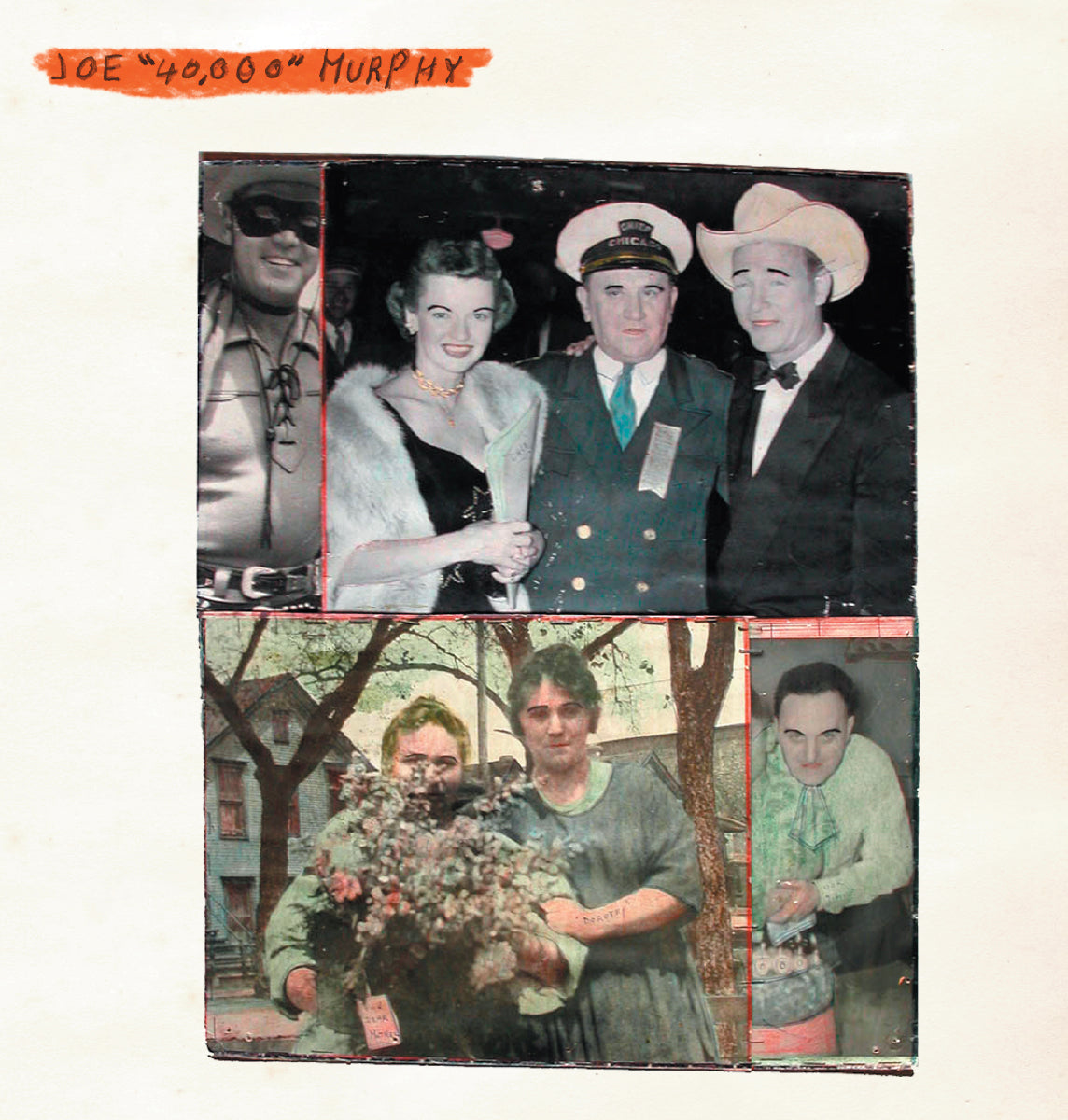
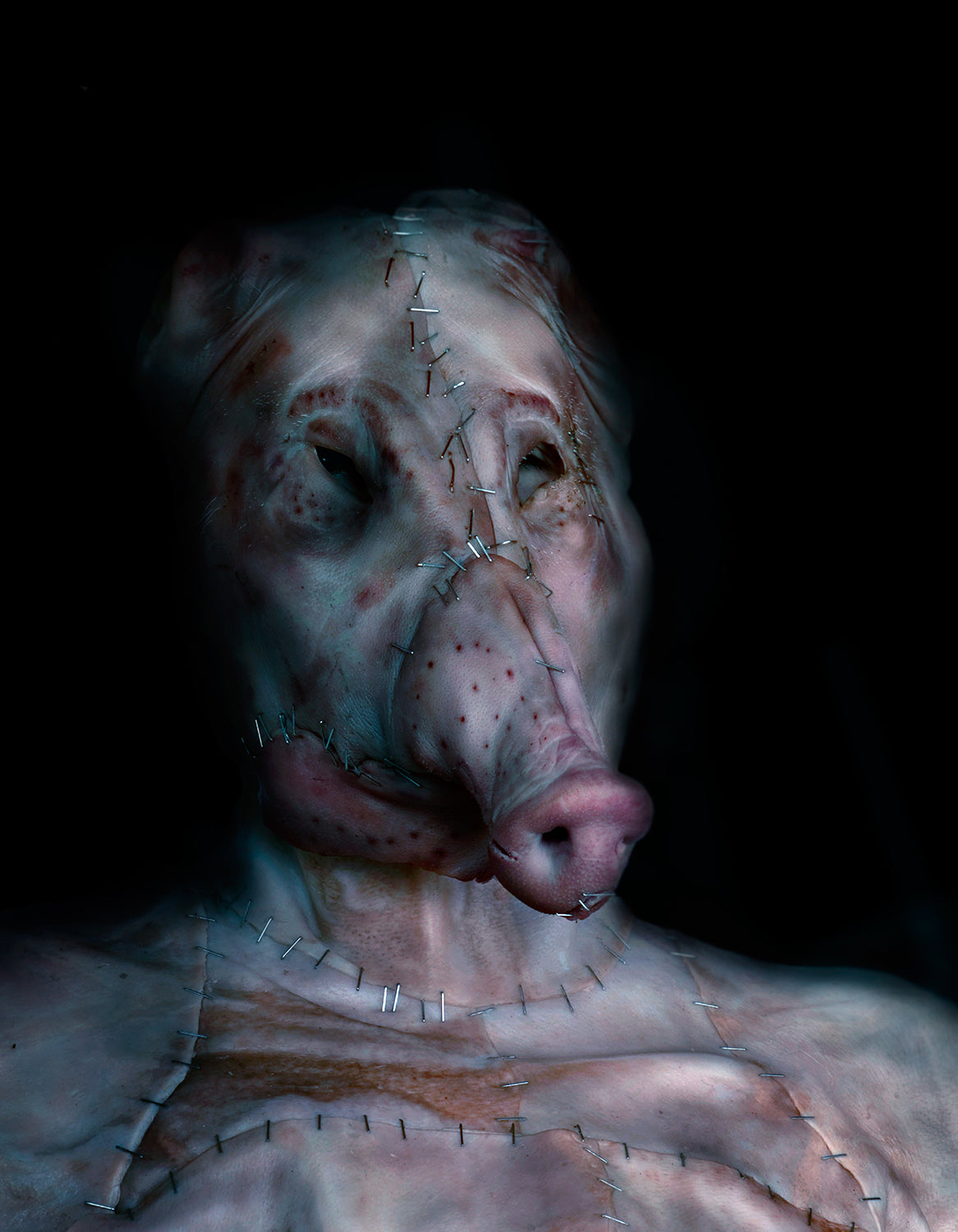
Gabriela Rivera Lucero
GABRIELA RIVERA LUCERO (Chile)
Session I : Abject Visualities
Presentation of the work of Gabriela Rivera Lucero, Chilean visual artist and photographer. Projects developed from a critical, decolonial and autobiographical approach will be exhibited, working on themes such as; feminism, care, violence and the abject.
Session II: Monsters and corporeal visceralities as an ethical-political possibility
Through photography and performance, strategies are established to install feminist questions in the arts and in everyday life. By building beasts and diverse organic shells, I establish ways of relating to the various species by questioning the patriarchal hierarchies of beauty and repugnance.
RODRIGO ALONSO (Buenos Aires, Argentina)
Session I:Body and Photography
A panorama of the multiple forms in which the human body has been the centre of the photographic gaze, from portraits, self-portraits, identity explorations, parodies and the appearance of the body as an affirmation (statement)
Session II. Photo and Video Performance
Session II: performance terrain for the camera is becoming more and more extensive and visited. We will reflect on this issue from the notion of performatic recording to the construction of situations specially designed for its technological capture
SessionII. Appointments, Appropriations and Re-actments
The reconstruction of events, images and historical works is a common practice among artists who position themselves critically with respect to the past. We will analyze the aesthetic and conceptual sense of these productions through their most interesting results
Use overlay text to give your customers insight into your brand. Select imagery and text that relates to your style and story.
Rocío Inmensidades
NELSON MORALES (Union Hidalgo, Oaxaca, Mexico)
Body and diversity.
For a long time I have photographed the Muxe community of Oaxaca of which I am also a part however at first I refused to be part of the ellxs as I was afraid of becoming a ¨vestida ¨ as they are derogatorily called, however I gave myself the opportunity to meet them, photograph them and at the same time try to find my belonging and identity within the group.
For me, photography is a tool that not only works to capture certain decisive moments of a group, but it can also be an exercise in self and personal recognition.
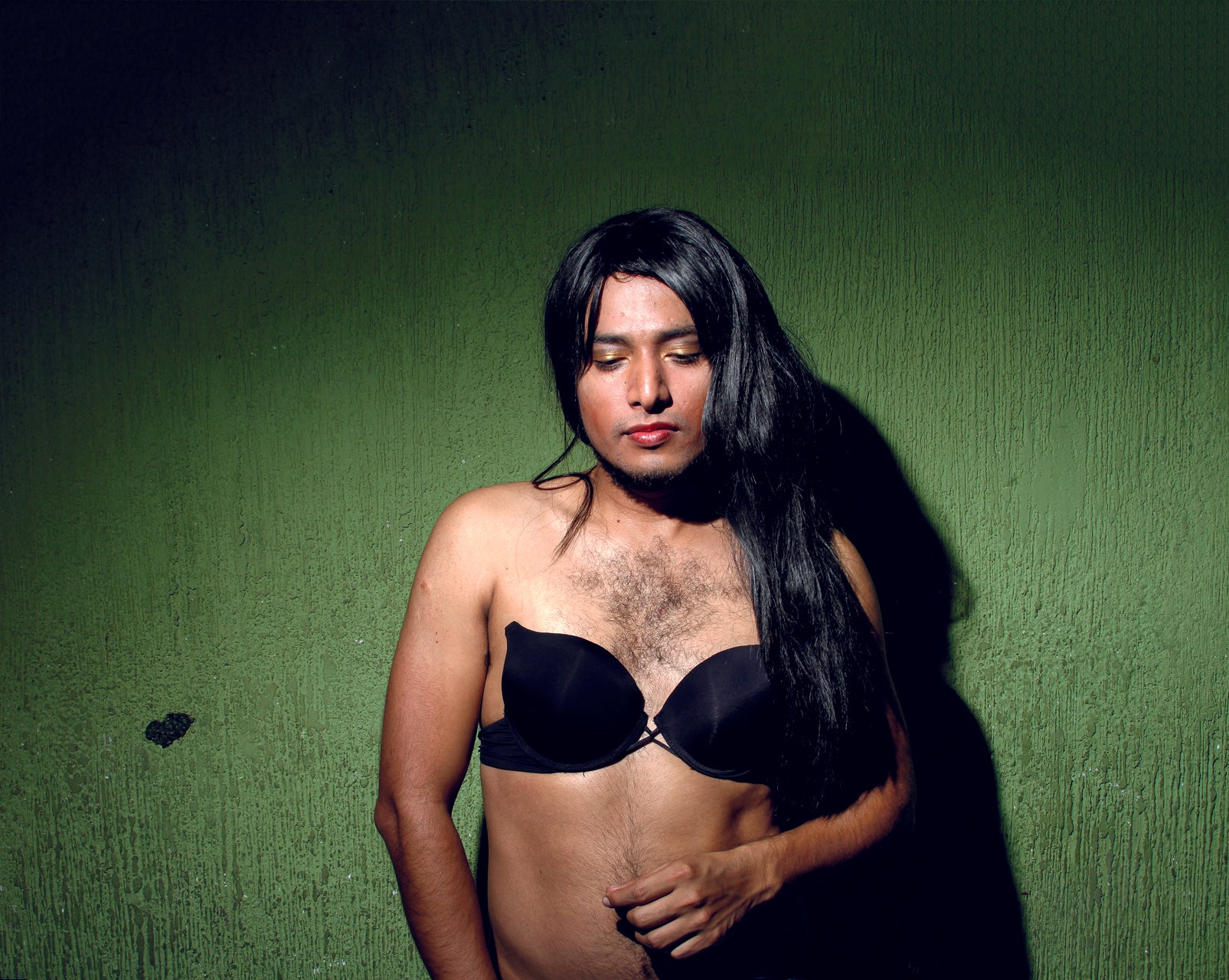
Musas Muxes, Nelson Morales
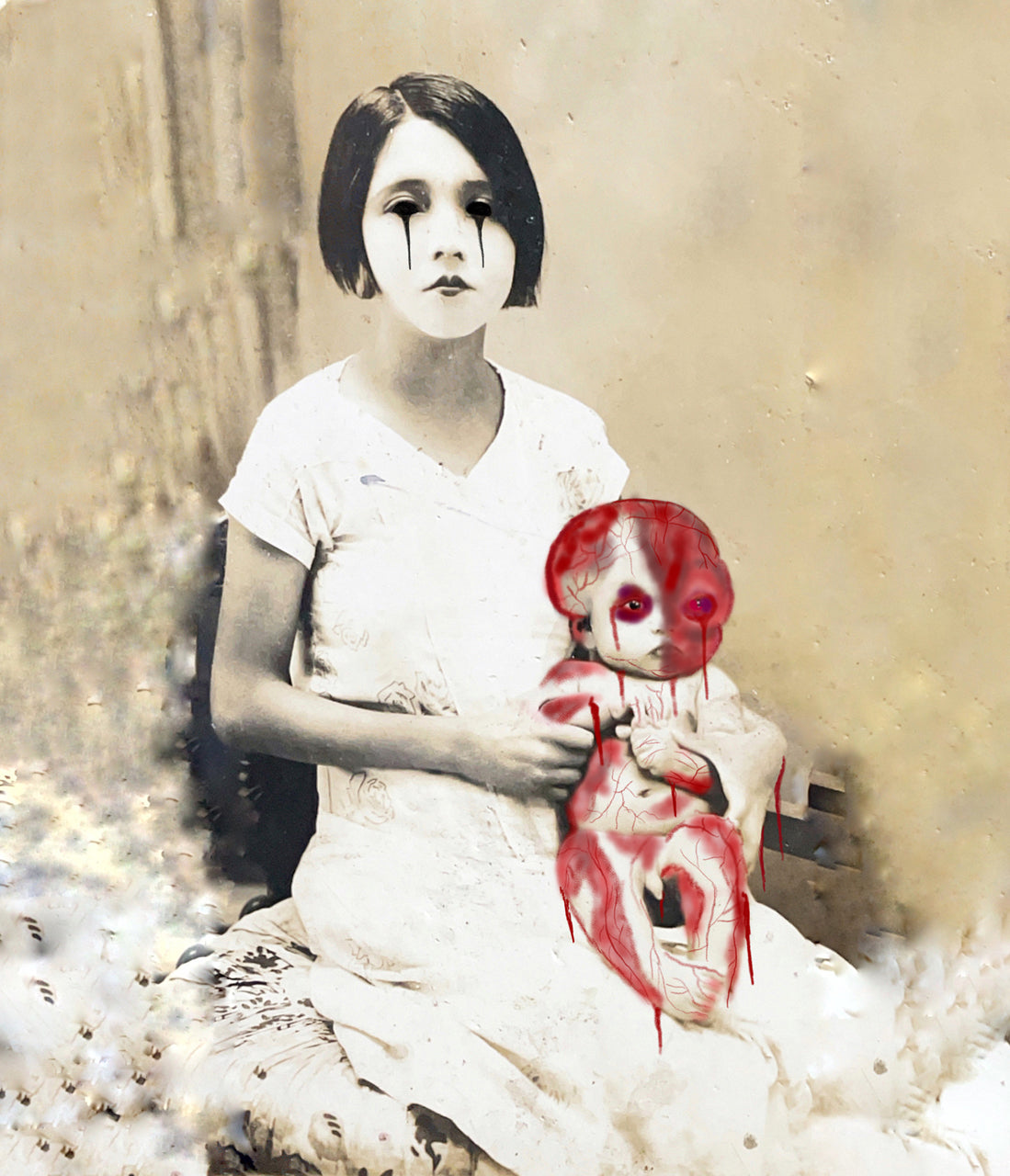
Diego Moreno. From the series Malignant InfluencesZaidaGonzález
ROCIO INMENSIDADES (Buenos Aires, Argentina)
Session I: The immensity, collectivizing the internal atelier.
The affection, the under, the margins, the friendship, the precarious, the body. A journey through the dewy work in the immensity of the last years, from its beginning to the present time. Through street interventions, institutional exhibitions and publishing self-publishing, making the body a political presence. Surviving by creating networks from the periphery: Profundo editions.
Session II:What is editing from the Buenos Aires conurbation in Argentina? What is self-management by creating networks between circles of diverse feminisms? A look at Profound editions and other publishers in the territory, reviewing artists, forms, supports and slogans. Cachureos y placeres: the fanzine archive treasuring the collective memory.
Session III: References of fanzines from the Latin American photographic and activist underworld.
Activations of anti-capitalist, (trans)feminist and contemporary fanzines organized in the southernmost territory of Latin America. Keys to the meeting .
LUANA NAVARRO (Brazil)
Session I: Body without a Synonym
In this session I will share with you my work process. I will talk about how I started an art project and about how I choose the ways of working from each project.
Session II: Art and politics - Brazil 2020
In this session I will share with you how I am working in the current context of Brazil which is stressed by political disputes and the rise of conservatism. I will share with you some projects that I have developed collectively.
SUB COOPERATIVA (Buenos Aires, Argentina)
Collective practices: a thousand eyes gaze
This session proposes a space for analysis, reflection and deepening of collaborative work. The collective approach contrasts with the idea of a creator alone with his ideas and tools, launched to understand the world. Collaborative work is not only a methodology that incorporates the otrx in its process, but it is also nourished by the healthy tension between individual and community subjectivity.
We will share research and implementation methodologies, mapping of themes and elaboration of proposals for the development of a collective project. We will also work on the idea of authorship, and on the ethics and aesthetics of power exercised in the stories that represent other people or communities. 15 years of experience in collective work, SUB will share how a platform for collaborative work was the starting point for generating other channels of creation such as a photobook publishing house and a cooperative school. And how the generation of activities linked to the territory can define an identity and a way of functioning. Class taught by four artists and teachers: Nicolás Pousthomis, Gisela Volá, Gerónimo Molina and Verónica Borsani.
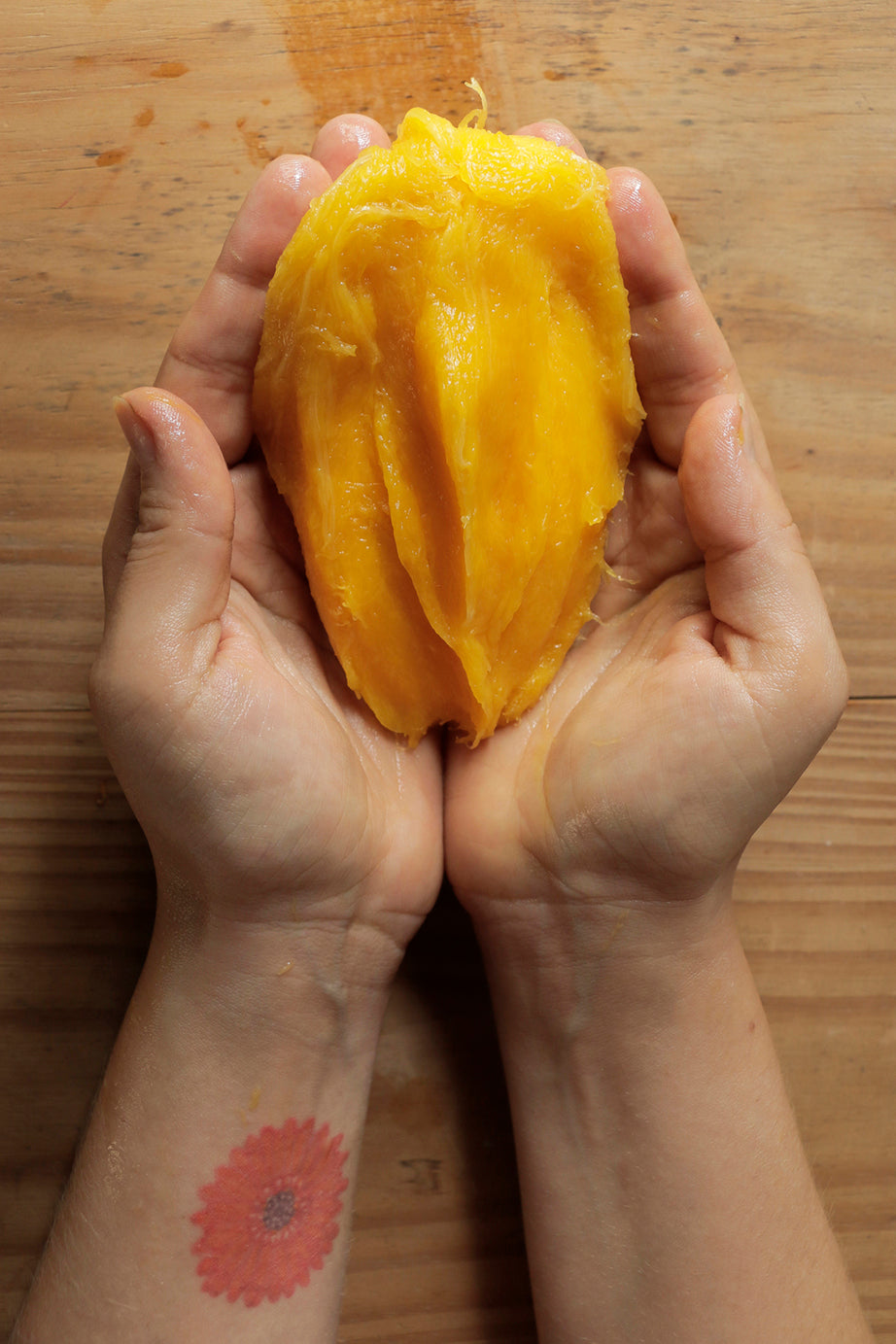
Manga, Luana Navarro
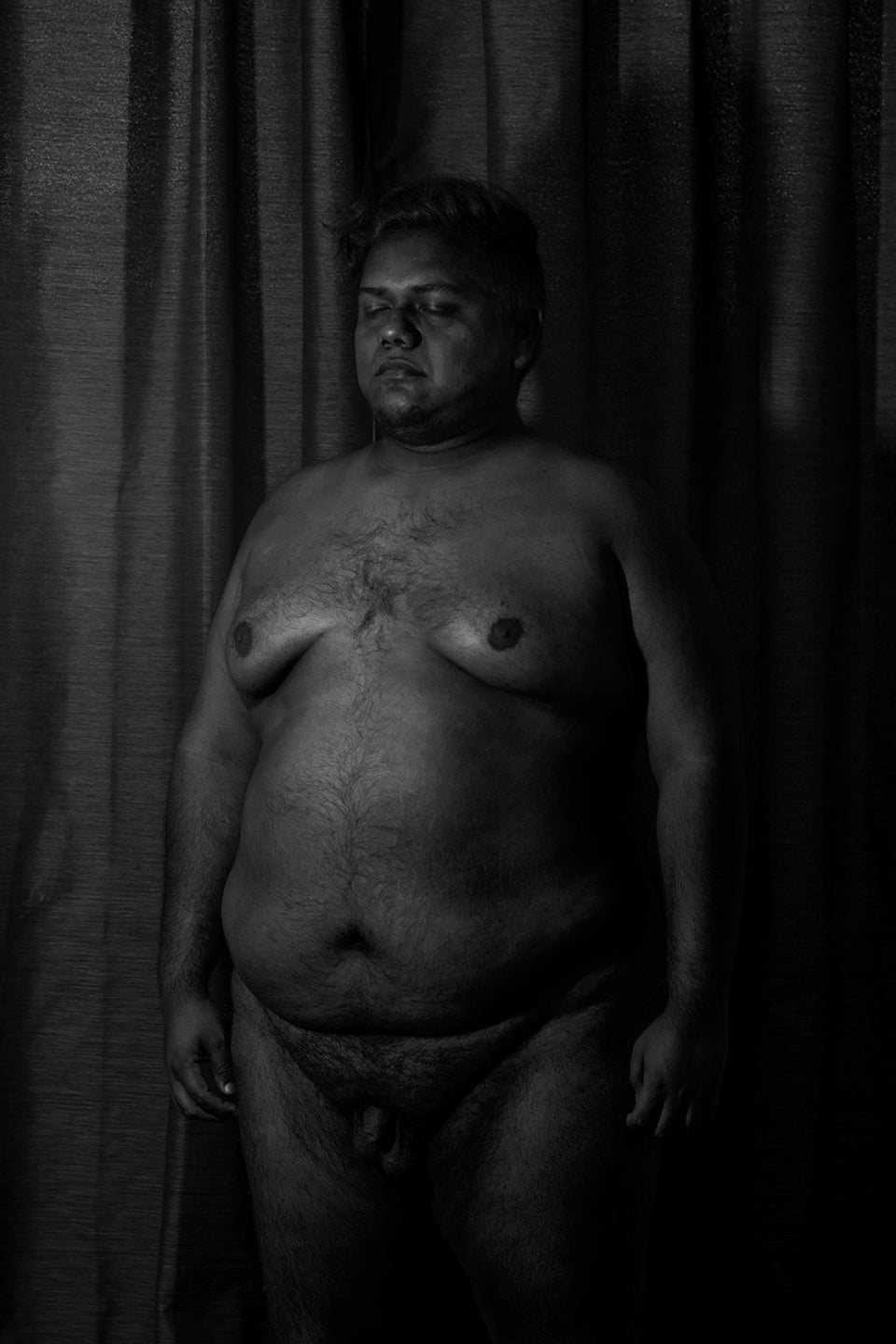
Juan José Herrera
JUAN JOSÉ HERRERA (Mexico)
Darkness and desire: Body, taboos and staging.
Visibility of the male nude in the photographic imagination." In this presentation, the evolution of the author's work will be discussed, as well as the implications when producing it and different approaches to the subject. An exploration of references and incidence in the conceptualization of pieces.
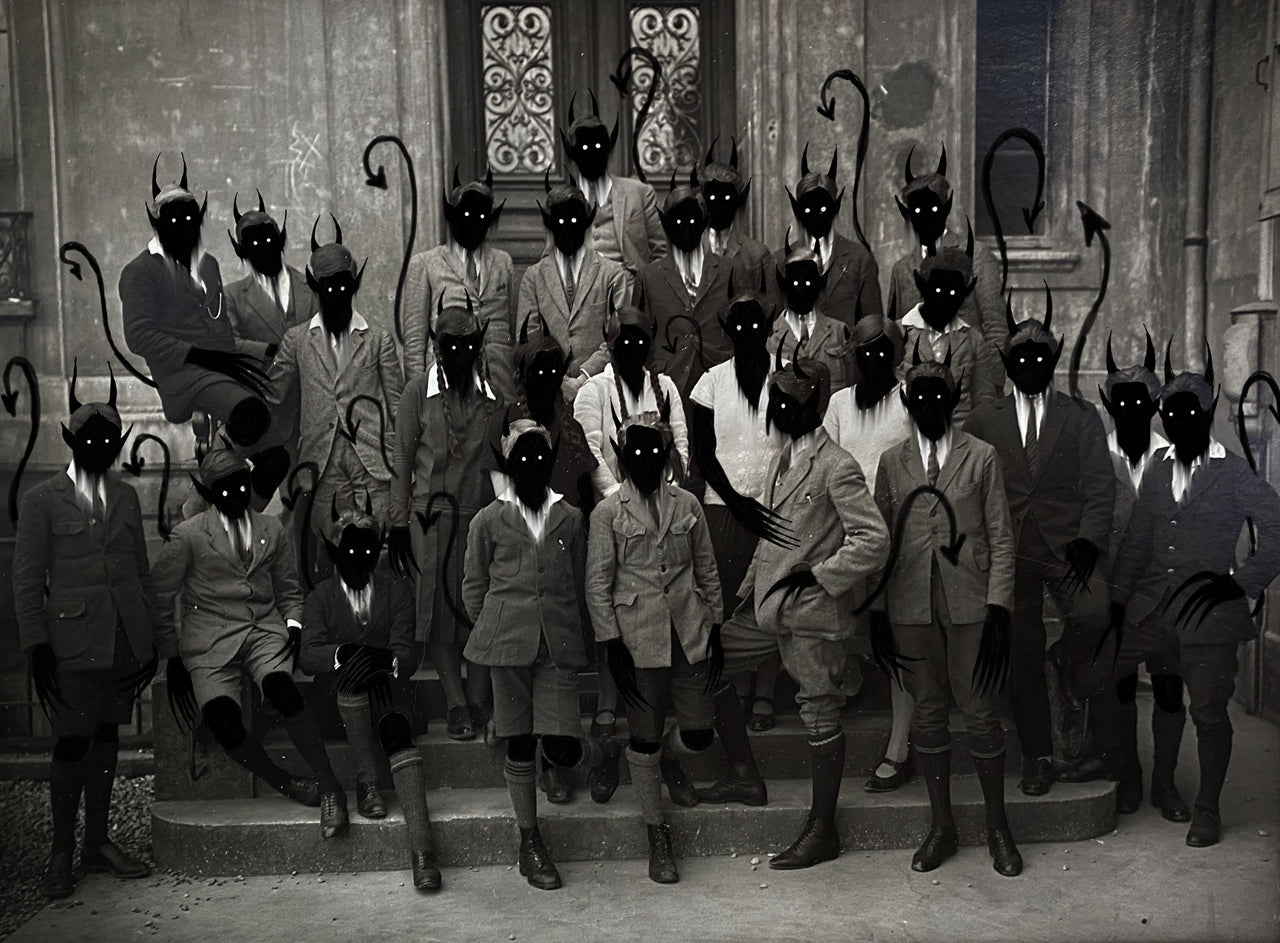
Diego Moreno. From the series Malign Influences
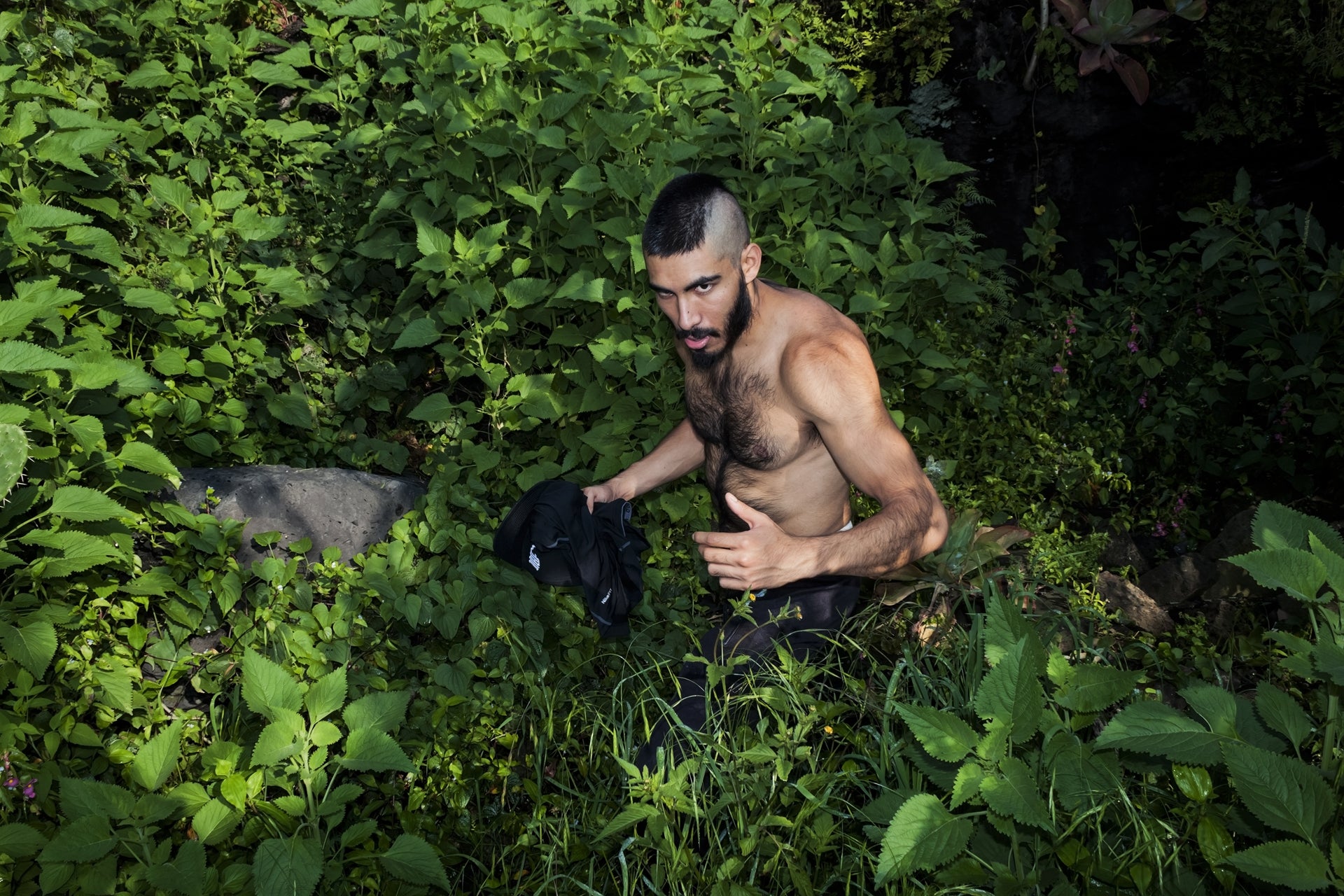
Eusebio Penha
REGISTRATION AND REQUIREMENTS
PROGRAM IN PRODUCTION PROCESS
Dates, requirements and registration fees will be announced.
